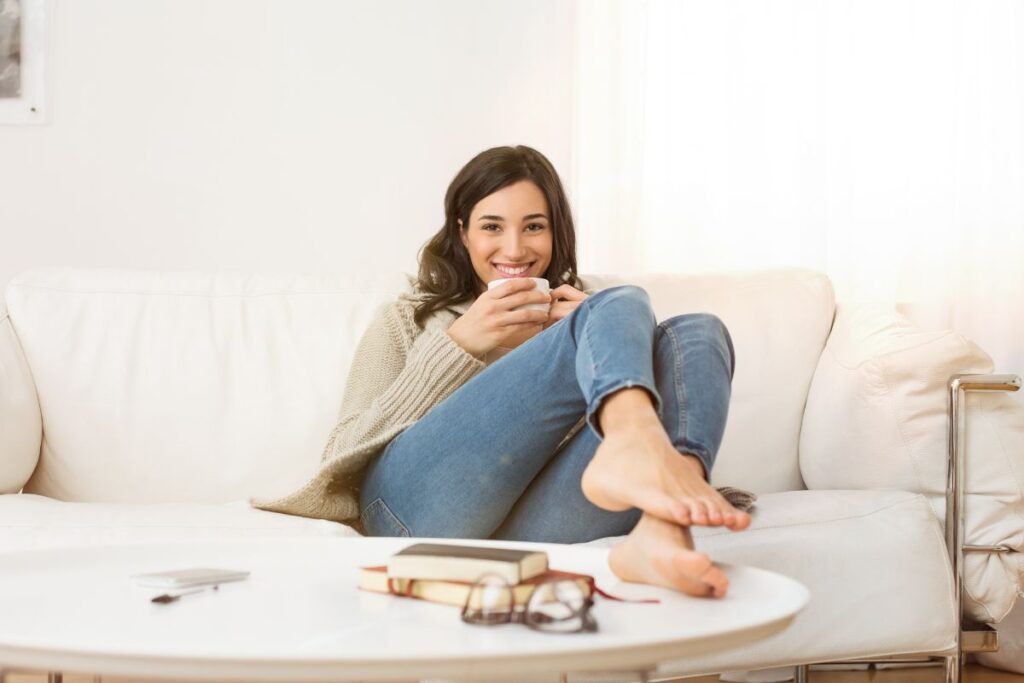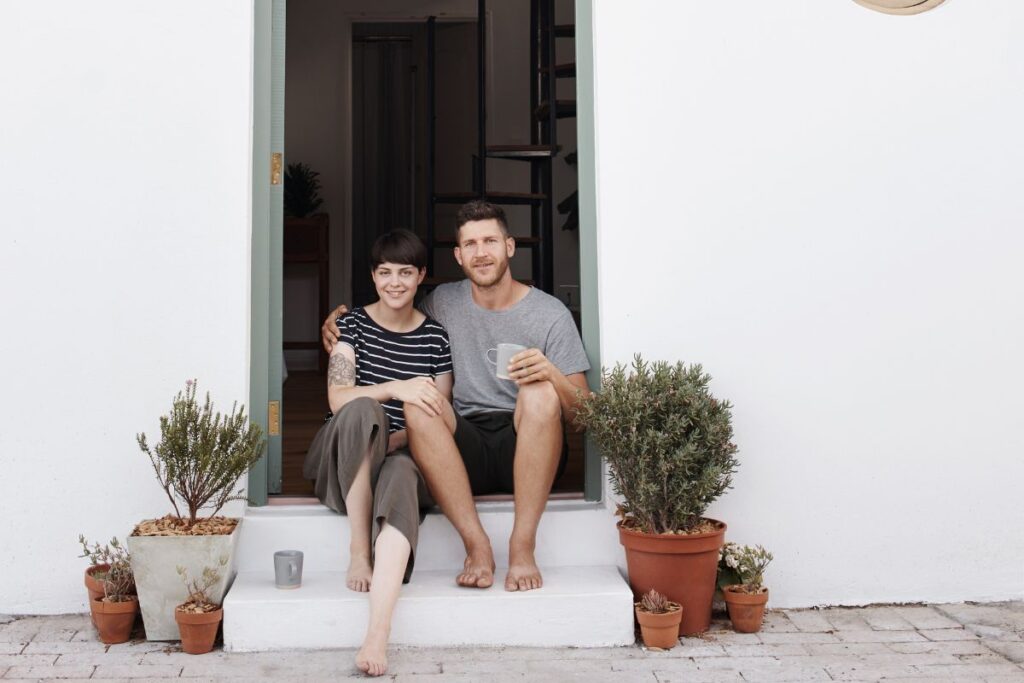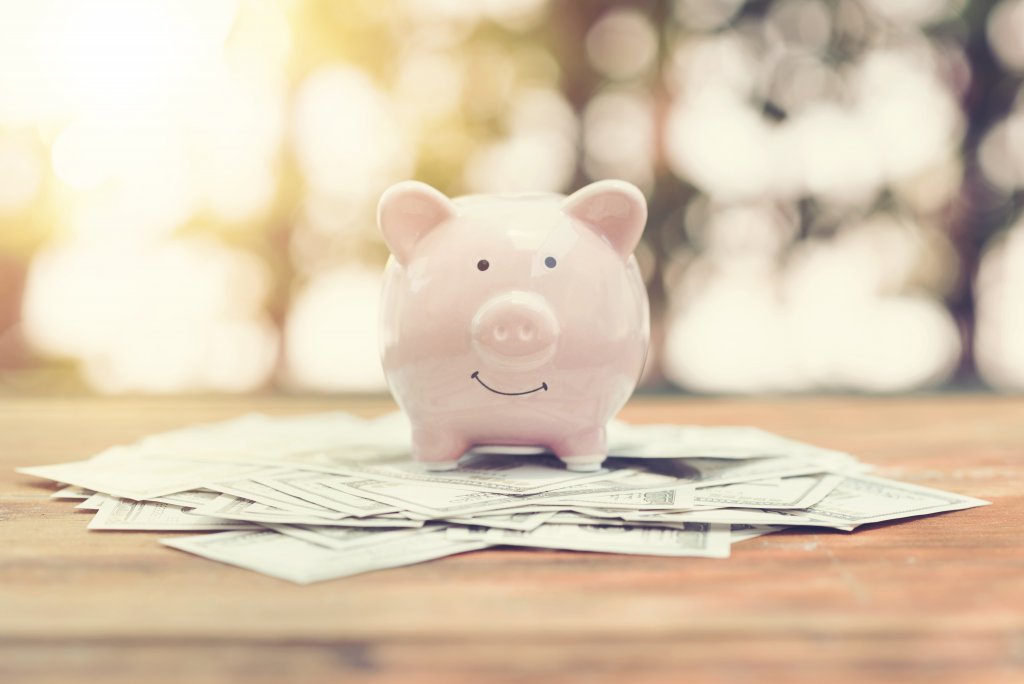Inside: Learn how to live as a minimalist and start your own journey of living more simply.
A guest post by Melanie Manard of The Conscious Insider
The word minimalism first appeared in the art world of the 60s to describe the work of artist Donald Judd. Nowadays, it’s used to define both design concepts and lifestyle precepts.
Minimalism is about recentering on what’s essential in our life while breaking free from the overconsumption mentality.
The minimalist mindset provides us with a set of guidelines to help us clarify our spaces and our minds.
In this post, we will look at how to live as a minimalist both in theory and in practice. Read on for tips on how to simplify your stuff and live with more intention.

How to Live as a Minimalist: Assess Material Possessions
The first area we will look at in how to live as a minimalist is reducing the stuff in your home.
How to own less and better – the theory
In today’s society, we have come to believe that the more things we own and accumulate, the better we will feel. Advertisers, marketers, and influencers bombard us daily with content where excessive consumption is the answer to all of our problems.
The core values of minimalism are the opposites of mass consumerism. While the consumer culture promotes more consumption as a way to reach happiness and satisfaction, minimalism teaches us that less is better.
Contrary to popular belief, minimalism is not about getting rid of every material possession.
The fundamental value of a minimalist mindset is realizing that what we already possess is enough.
A recurring theme is to learn to develop appreciation and gratitude for what’s around us. Focus on what’s essential and simplify the rest. For example, you should keep objects that are useful or very meaningful to you.
This mindset also encourages the repurposing, reusing, and repairing of products we would usually throw away. It’s about moving away from the idea that everything is disposable.

How to own less and better – Practical steps
Dr. Saxbe, a psychology professor at the University of Southern California, “urged shoppers to consider whether they truly need an item or if it will add to their home’s sense of dysfunction. Once it’s in the house, it’s really hard to deal with. You get attached to the things you own”.
Here are some tips to start decluttering your home efficiently:
- Use a rule for every item you are evaluating. Ask yourself: do I use it? Do I love it? And do I need it?
- Sort objects to make the decluttering process easier, for example: give away, recycle, sell, keep.
- If you don’t know where to start, use a Jumpstart Guide or a decluttering course.
- Find the method that works for you: one room at a time, a weekend plan, or 20 minutes per day, decide what is the right decluttering frequency for you, and be consistent with it.
- Have fun and join a decluttering challenge such as Project 333, and exchange tips and thoughts with a community of people who are decluttering.
- Use an app to help you declutter. Try out Any.do, Todoist, or Calendly to help you schedule, remember, or modify your to-do lists and calendar.
- Don’t forget to declutter your online space as well, start with your email inbox or your desktop.
- Getting rid of things is hard, especially sentimental items, but don’t forget it’s only things.
Check out this post for more tips about how to start decluttering.
Minimalism is about living better with less stuff, but it doesn’t only apply to physical possessions. There are other parts of life that get cluttered and need to be simplified.

How to Live as a Minimalist: Live with Intention
Living more simply is about more than just the things in your home. It’s also about identifying and eliminating some of the clutter in other areas of your life.
Downsize your life – The theory
Becoming a minimalist is a life decision that often derives from feelings of being cluttered. However, that clutter shows up not only in material possessions but also in your thoughts.
Your life feels cluttered when you are constantly running to your next appointment and between your career, your relationships, or your kids, and you have no time to take a deep breath. You likely feel overwhelmed and overworked.
It can be easy to get caught up in the pursuit of more – more money, more possessions, more success. The more you earn, the more you spend but at the end of the day, you still feel empty. Does that sound familiar to you?
Through your minimalist journey, you will start to question what lifestyles are more appealing to you. For example: Is this work worth your time and dedication?
When you begin to consider how many hours of your life were spent working in order to acquire the material things you own, it can shift your perspective.
People embracing minimalism desire to live an uncluttered life and to embrace simplicity in all its forms. It can mean slowing down or creating space to find your true self.
Minimalism promotes meaningful experiences, relationships, and self-care over physical possessions.
Decluttering your mind is a long process. Reducing distractions and focusing on essential relationships and interactions, will allow you to live with more intention.

Downsize your life – Practical steps
Consider these five steps as you seek to live with less clutter in your life.
Question your consumption habits.
Minimalists challenge the belief that more is better, and instead advocate for living with less. One key component of minimalism is questioning our consumption habits.
Before buying something new, minimalists ask themselves: do I really need this object? Do I have something else I can use instead? Will this add benefit to my life or become a burden?
By considering these questions, you begin to break the cycle of consumption and reduce the environmental impact that comes along with it. In a world where resources are increasingly scarce, minimalism offers a sustainable alternative to our lifestyle.
Prioritize experience over possessions.
Minimalists believe that life is more about experiences than possessions and that by decluttering their homes and lives they can focus on what truly matters.
For many, this means spending more time with family and friends, pursuing hobbies and passions, or simply taking the time to appreciate the little things in life.
It’s time to consider living a simpler life.

Declutter your relationships.
Do the people close to you support and encourage you? Do they keep you challenged? Are they bringing you joy?
A minimalist mindset helps you acknowledge the true value of every relationship in your life.
Be grateful.
Being grateful benefits both mental and physical health. Studies showed grateful people feel happier, have lower levels of stress and anxiety, and improved sleep.
One simple way to start incorporating gratitude into your life is to keep a gratitude journal. Each day, take a few minutes to write down five things you are thankful for.
Another way to practice gratitude is to simply be present in the moment and appreciate what you have. Learning to be content with what you have is an important step for a simpler life.
Increase self-awareness.
Focus on what’s essential for you, the choices you want to pursue. The more you practice self-introspection, the more you will know yourself and gain confidence. There is freedom in knowing who you are and feeling assured in your decisions.
Check out this post for more tips on living with intention.

Why become a minimalist?
Here are four reasons to pursue a more minimalist lifestyle.
1. Less stress
Have you ever done a spring clean-out? Or have gotten rid of these old clothes you never wear? Do you remember how that felt? Decluttering makes you feel better, science has proven it.
Many scientific studies have shown that a cluttered home can be stressful home. One research found that “clutter can also induce a physiological response, including increased levels of cortisol, a stress hormone.”
An overabundance of physical possessions is shown to create anxiety. It makes people feel overwhelmed and stressed out.
Clutter problems led to a significant decrease in satisfaction with life among older adults.
Letting go of the excess and creating order in your living space will lead to more peace, allowing you to focus on essentials.

2. Save money
Minimalism can also help you to save money.
As mentioned above, minimalism is about choosing experiences over things and accepting that what we have is enough. By decluttering your life and getting rid of unnecessary material items, and choosing to buy less going forward, you will save more money.
By reflecting before purchasing something and questioning your consumption. minimalism can help prevent impulse purchases.
Minimalism can help prevent and decrease debt by freeing up more of your money.
3. Gain back time
Minimalism can help you gain back some time.
Less clutter will create more time for yourself as you spend less time shopping, cleaning, and organizing.
Minimalists use their time more wisely. They now spend time on the right things that bring value to their life.
Once free from distractions, and mental clutter, you can live with intention and pursue your true interests.
Once you have decluttered your life from things and commitments, you will gain back valuable time.

4. Become eco-friendly
One of the most significant contributors to dwindling resources and pollution is overconsumption.
Consumers in developed nations have an insatiable appetite for new products, and this demand is often met by companies that mass-produce cheap goods with little regard for the environment.
The result is mountains of waste and depletion of natural resources.
Thankfully, there is something we can do to help solve this problem: reduce our consumption and change our habits.
By buying less, we can cut down on waste, save money, and put pressure on companies to change their practices.
As a minimalist, buying better sustainable and ethical products may seem like a small act, but if enough people make the effort to reduce their consumption, it could make a big difference for the planet.
Minimalists not only consume less but also consume more consciously.

How long does it take to become a minimalist?
People often ask how long it takes to become a minimalist.
There is no timeline to become a minimalist. You can start small, decluttering one room at a time, or spend a whole month implementing changes.
The important thing is to start somewhere.
In time, you will find that your home is more orderly, your possessions are more meaningful, and your life is more simple.
You can become a minimalist at any age, and it’s never too late to start.
Can you simplify and not become a minimalist?
After learning how to live as a minimalist, perhaps you are excited to start your journey. That’s great!
However, if you feel drawn to live with less but are intimidated or overwhelmed by the idea of living as a minimalist, that is ok too. You can still begin to declutter and simplify with whatever end goal works best for you.
Focus on your own journey and start taking small steps toward simplicity today.

Melanie Manard is the founder of The Conscious Insider, a digital platform for a sustainable and ethical lifestyle.
You can usually find her reading, cooking or riding her bike.
Sign up on the form below to get weekly decluttering tips sent straight to your inbox. You’ll also get the free Your Home Decluttered Jumpstart which includes 100 easy items to declutter and 12 high-impact areas to declutter in 10 minutes.


I really enjoyed that post Melanie. Very good overview of minimalism. I have found that minimalism benefitted me by reducing my anxiety and improving my creativity. It feels like simplifying my life help me find myself again!
Letting go of things is hard… at first. But with each item I declutter, I begin to feel lighter and more at peace in my home. One of my motivators is cutting down the time required to maintain my home. If I can simplify to the point that my home takes much less time to keep tidy, that will free me up for more meaningful activities.
Thanks for all the validation on living a life of minimalism (which I have been trying to do for a number of years!). I have found it makes Life a lot easier to live, and much less stressful too! Plus it’s an enjoyable lifestyle.Thanks again for your word.
I live in a small home, I’m sure that Melanie would find it very cluttered. it was built in 1928 so I’ve already minimalized new building. I buy 90% of my possessions at a resale shop or antique store so what I bought has already been made years ago. even my clothing I would say at least 50 to 70% of it I buy it resale. however I have actually got to the point to where I have enough. I am going to start using jars and containers that my food comes in to store my leftovers cutting down on any ziplock type bags I buy. I also use all of my leftovers I find it makes me a very creative cook. I think her ideas are wonderful but to me for a lot of people and minimalist home is a house not a home. but everyone should live with what makes them very comfortable and yes they should do their best for the ecology of the Earth.